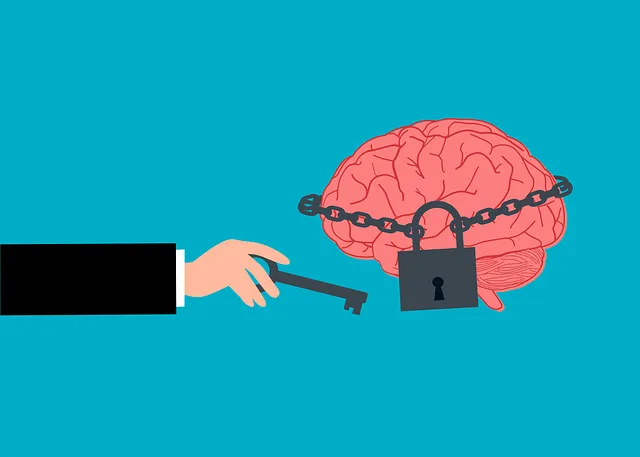Cultural sensitivity is paramount at Kaiser Permanente psychiatry phone number Englewood to provide effective, patient-centered mental healthcare for its diverse community. By understanding and respecting patients' cultural backgrounds, beliefs, values, and communication styles, mental health professionals can address both symptoms and underlying cultural factors through tailored care, stress reduction methods, and empathy-building strategies. Training should emphasize self-awareness, interactive workshops, mentorship programs, and integrating evidence-based practices from diverse cultures to enhance treatment outcomes, build trust, and improve overall well-being for all patients, reflecting the clinic's commitment to equitable mental health services.
Cultural sensitivity is paramount in mental healthcare, ensuring equitable access to quality treatment. This article explores the intricate balance between cultural competence and psychiatric practice, using the Kaiser Permanente psychiatry phone number Englewood as a case study to highlight potential biases. We delve into strategies to enhance cultural awareness among psychiatrists, emphasizing the importance of diverse perspectives in patient care. Ultimately, we advocate for actionable steps towards promoting equitable mental health services for all communities.
- Understanding Cultural Sensitivity in Mental Healthcare
- The Impact of Cultural Bias in Psychiatric Practice (Kaiser Permanente psychiatry phone number Englewood as a case study)
- Strategies to Enhance Cultural Competence among Psychiatrists
- Promoting Equitable Mental Health Care: A Call for Action
Understanding Cultural Sensitivity in Mental Healthcare

Cultural sensitivity in mental healthcare is a critical aspect that requires professionals to understand and appreciate the diverse cultural backgrounds of their patients. This understanding involves recognizing and respecting different beliefs, values, customs, and communication styles, ensuring that care is tailored to meet each individual’s unique needs. At organizations like Kaiser Permanente, with a wide patient base encompassing various cultures, such as those seeking psychiatric services at the Englewood location, cultural sensitivity is not just an ideal but a practical necessity.
The practice of culturally sensitive mental healthcare involves incorporating empathy-building strategies and stress reduction methods that resonate across diverse populations. This approach helps to foster trust between patients and providers, enhancing emotional regulation and ultimately leading to more effective treatment outcomes. By integrating these practices, mental health professionals can ensure they provide inclusive care, addressing not just the symptoms but also the underlying cultural factors that may influence a patient’s experience and recovery journey.
The Impact of Cultural Bias in Psychiatric Practice (Kaiser Permanente psychiatry phone number Englewood as a case study)

In the context of mental healthcare, cultural sensitivity is paramount to ensuring effective treatment and support for diverse patient populations. The case study of Kaiser Permanente psychiatry phone number Englewood highlights a critical issue: the impact of unaddressed cultural biases on patient outcomes. When practitioners lack awareness or understanding of their patients’ cultural backgrounds, it can lead to misdiagnoses, inappropriate treatments, and a breakdown in communication that hinders progress towards recovery. For instance, symptoms of distress may manifest differently across cultures, with some expressing emotional pain through physical complaints rather than verbal cues commonly associated with Western psychiatric practices.
By incorporating cultural sensitivity training and adaptive practices, Kaiser Permanente psychiatry phone number Englewood can better serve its diverse clientele. This includes adopting evidence-based methods like Depression Prevention programs that are culturally tailored to address specific community needs. Promoting Emotional Well-being through unique cultural expressions and Confidence Boosting techniques that resonate with different backgrounds can also foster a sense of belonging and trust among patients, ultimately enhancing treatment adherence and outcomes.
Strategies to Enhance Cultural Competence among Psychiatrists

To enhance cultural competence among psychiatrists at Kaiser Permanente Englewood, training programs should focus on self-awareness and empathy. This involves learning about diverse cultural backgrounds, beliefs, and practices to avoid stereotypes and assumptions. Interactive workshops, cultural sensitivity seminars, and mentorship programs can facilitate this process. Psychiatrists should also be encouraged to actively listen to patients’ stories, incorporating their cultural perspectives into treatment plans.
Integrating evidence-based practices tailored for different cultures is another effective strategy. This includes adopting stress reduction methods like mindfulness and meditation that respect and incorporate traditional healing techniques. By fostering an environment of mental health awareness and cultural understanding, Kaiser Permanente Englewood can ensure its psychiatrists provide patient-centered care that respects and validates the unique experiences and needs of every individual, regardless of their background.
Promoting Equitable Mental Health Care: A Call for Action

In today’s diverse society, promoting equitable mental health care is more crucial than ever. Cultural sensitivity plays a pivotal role in ensuring that individuals from all backgrounds receive effective and compassionate psychiatric services. At organizations like Kaiser Permanente, the psychiatry phone number Englewood serves as a gateway for patients seeking support, highlighting the need for culturally competent practices. This involves understanding and appreciating the unique values, beliefs, and expressions of mental health concerns across different cultures.
By integrating Mental Health Education Programs Design tailored to diverse communities, healthcare providers can prevent burnout and enhance their ability to offer specialized care. Burnout prevention strategies are essential tools for maintaining the well-being of healthcare professionals, enabling them to provide quality services. Fostering mental wellness through these initiatives not only benefits patients but also contributes to a more inclusive and accessible mental health landscape, ensuring that everyone, regardless of cultural background, has access to the support they need.
Mental healthcare practices must embrace cultural sensitivity to provide equitable treatment, as evidenced by the case study of Kaiser Permanente psychiatry services in Englewood. Bias and cultural misunderstandings can significantly impact patient outcomes, as seen in this context. To move forward, psychiatrists should adopt strategies that foster cultural competence, ensuring every patient receives care tailored to their unique background. This includes ongoing training, promoting diverse teams, and encouraging open dialogue to navigate the complex landscape of cultural differences. By doing so, we can strive for a more inclusive mental health care system, reflecting the diversity of our communities, such as the Kaiser Permanente psychiatry phone number Englewood serves.






